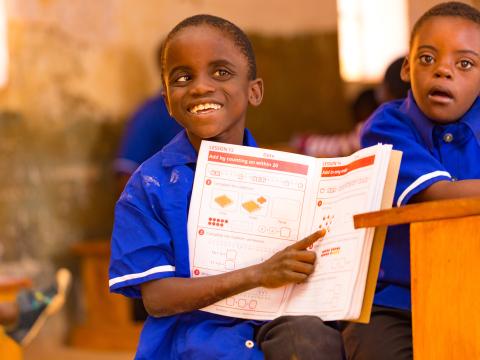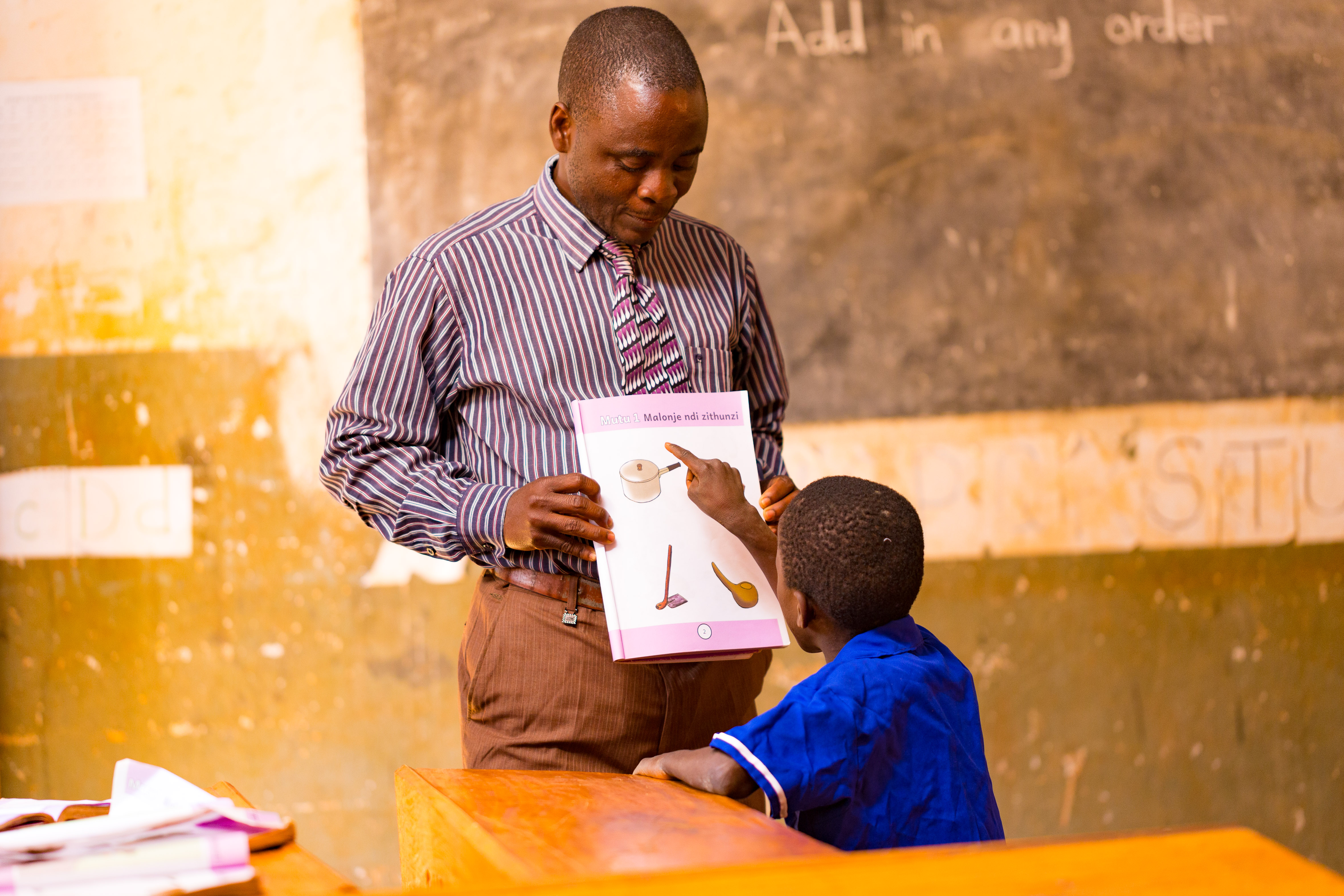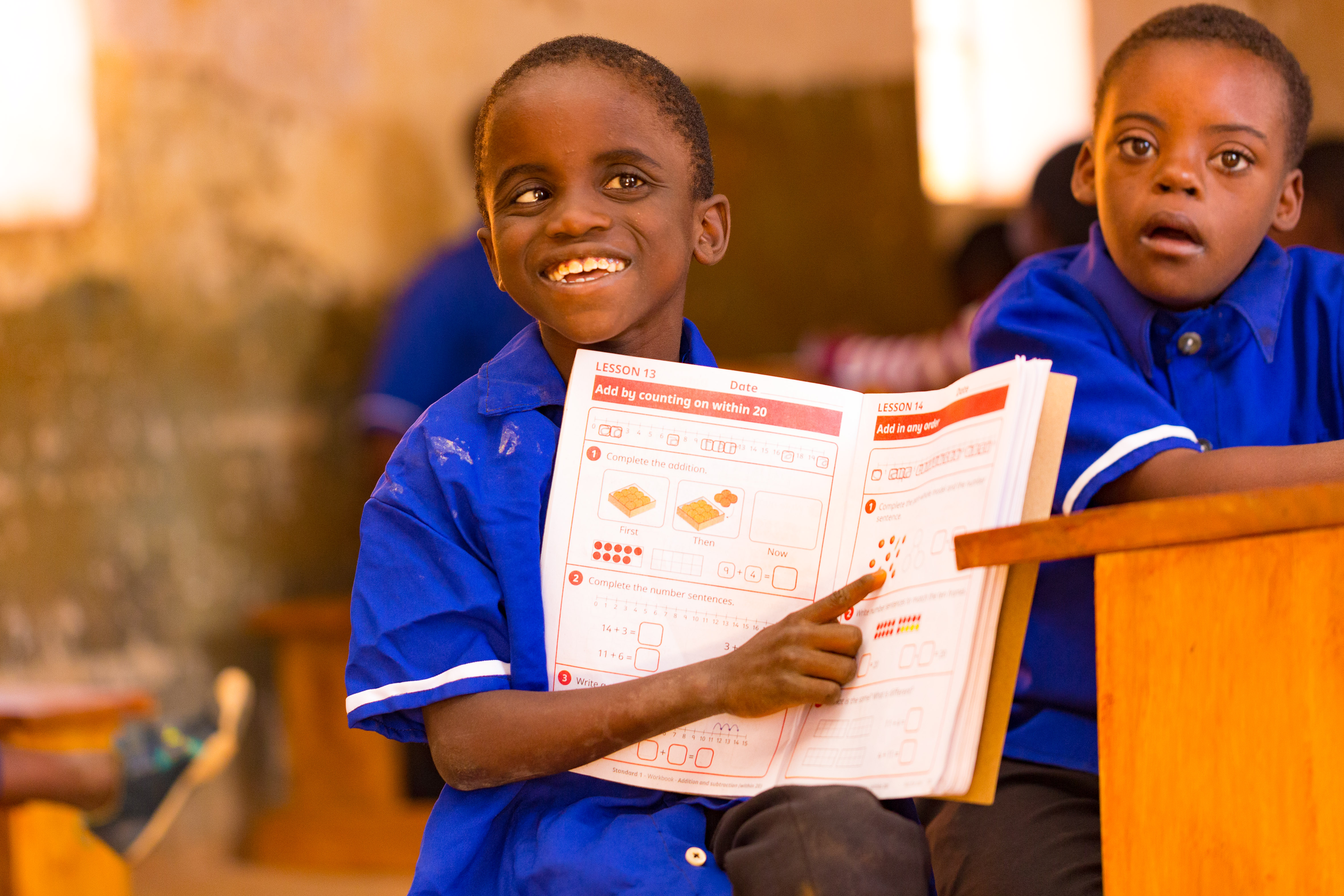From Braille to Books: Constance Sees a Brighter Future After Cataract Surgery

Established in 1954, situated in the area of Senior Chief Kaomba in Kasungu, Chilanga Inclusive School is home of close to 155 children with visual impairment where 79 are boys and 76 are girls from grades one to eight.
Seven-year old Constance is among the 79 boys at the school. He is in grade one. At enrolment, Constance was believed to have total blindness, as such, he was recommended for braille- based learning.
“When he was enrolled, as an institution, we categorized him as a learner who had total blindness, as such, the learning style for him was braille,” says Maxwell Benson, a grade one Special Needs teacher.
However, with World Vision’s Able to Thrive project mass screening exercise, a thorough examination indicated that Constance had cataract, a correctable form of visual impairment.
Today, Constance has just had an eye surgery and the cataract is gone. Constance can see and is now able to distinguish between one colour shed and another.

Benson says, because of his improvement, he will no longer learn using braille as he now has complete vision.
“After the operation, Constance now has a normal vision as he can see shapes and appreciate colours. For this reason, we have changed his learning style as he is now using normal books unlike braille,” says Benson.
Because of this change, Constance will have to repeat grade one so as to accustom him to the new learning style before progressing with the other grades. Before the operation, Benson says Constance used to fall easily or bump into obstacles, scenarios that rendered him several bruises.
“Before this operation, Constance used to fall and hit against walls and other objects. But today, with his normal vision, he no longer bruises himself, the operation has been so successful on him,” adds Benson.

“I can see letters, I can see my friends I can walk easily after the treatment at the hospital and I am so happy now,” says Constance who wants to be a police officer.
Apart from helping individual learners, World Vision through the project has also been supporting the institution with learning materials and staff capacity building.
Chikondano Kamphandira, the institution’s head teacher says World Vision has enabled the institution well-capacitated as they have access to modern equipment as well as a staff that is well updated in terms of visual impairment knowledge.
“World Vision has supported us with laptops, Orbit leaders, cube boards, stylus, hand frames, magnifying glasses, projector, and Bluetooth devices, just among others. They have also provided us capacity building on how to operate these modern gadgets. All this has made teaching at this facility so convenient and we are so grateful to World Vision for the Able to Thrive project,” explains Kamphandira.